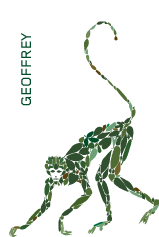A key part of our work in Azuero is knitting together a network ranging from grassroots actors to international institutions. Some of these partners are mentioned here, but we interact with many more on a daily basis, working together to create positive environmental change in Azuero.
Among our collaborators are educational institutions. We host students and faculty that perform research or conduct internships that intersect and engage with AEP programs. The Azuero offers a perfect combination of remoteness and easy access, excellent scientific documentation, research projects in progress, good accommodations, and a well-equipped laboratory. For more information about internship, research or field course opportunities, please click here.
Resources for Collaborators
- Resources at our Pedasí office: temporary lodging digital and print library, public computers, high speed WiFi, research assistants. We also hold community activities and educational workshops here.
- The nearby Achotines Laboratory is the only place in the world where Yellow Fin Tuna have been spawning in captivity since 1996. It is adjacent to one of the Azuero’s largest intact dry coastal forests. We are working with The Achotines Lab and its non-profit owner (InterAmerican Tropical Tuna Commission) to raise funds to put the 120 Hectare Achotines Forest into a permanent conservation easement. This will ensure that this endangered forest system is preserved and will also enable us to begin plans for a sustainable Center for Biodiversity Study (marine and terrestrial) in the forest. The Achotines lab constantly receives groups of visiting students and scientists and has researcher accommodations available.
- In the vicinity of the Achotines Lab are native tree species test plots begun in 2003 by PRORENA (Native Species Reforestation Project), an affiliate of The Smithsonian Tropical Research Institute STRI. These plots are providing valuable information on reforestation possibilities for targeted purposes in the difficult Azuero environment and demonstration plots for those stakeholders interested in reforestation. Researchers from Yale and PRORENA have used these as a resource for research on secondary succession and carbon sequestration.
- As we continue to work with private landowners to reforest strategic areas of Azuero, these new reforestation sites serve as wonderful study sites for research on the impacts of reforestation on wildlife and farmland productivity.






